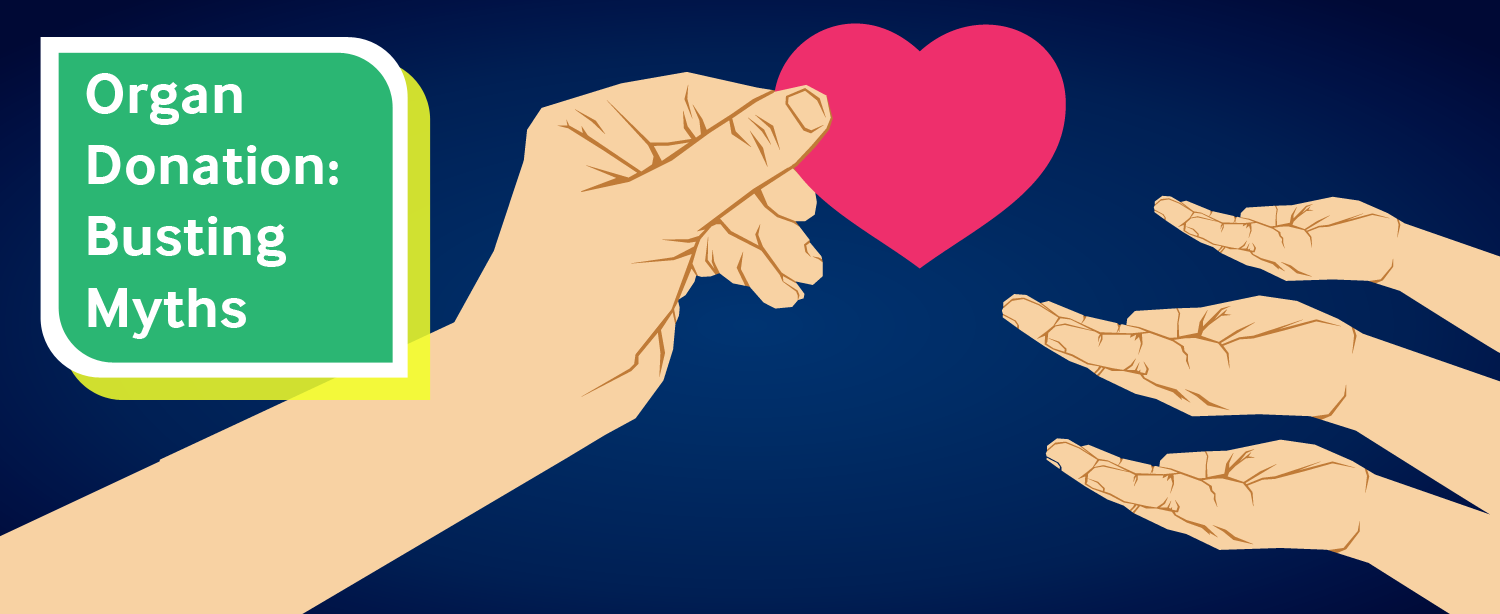Approximately 5 lakh people across the nation die due to unavailability of organs each year. There is a wide gap between the number of transplants awaited, and the organs available. There is an urgent need for more people to step and donate their organs; save the lives of people languishing due to organ failure. If you’ve never considered organ donation or delayed becoming a donor because of possibly inaccurate information, here are answers to some common organ donation myths and concerns.
MYTH: I’m too old to be an organ and tissue donor
FACT: Age is not a barrier. There’s no defined cutoff age for donating organs.
The decision to use your organs is based on strict medical criteria, not age. Don’t prematurely disqualify yourself. Let the doctors decide at the time of your death whether your organs and tissues are suitable for transplantation.
MYTH: I’m not healthy enough to donate because of my lifestyle choices
FACT: You don’t have to be in perfect health. People who smoke, drink or don’t have a healthy diet can still donate.
There’s every chance that some of your organs and tissues may be suitable for donation. Don’t rule yourself out – count yourself in! The determining factors are where and how a person dies, and the condition of their organ and tissues.
MYTH: It’s my choice – I don’t need to discuss it with my family
FACT: Your family needs to know. They will be asked to confirm your decision.
- Families play a crucial role in the donation process. The family will be involved in each step of the donation process and be asked to provide vital health information – even if you have registered your decision. If you’ve decided to become a donor, you need to register your decision on the Organ Donor Registry.
- Most importantly you need to discuss your decision with your loved ones. Prepare your family so that they are comfortable being part of the process.
MYTH: Organ and tissue donation disfigures the body
FACT: Organ donation is specialized surgery and does not disfigure the body
- Organ and tissue retrieval is performed by highly skilled health professionals. The surgical incision made during the operation will be closed and covered as in any other operation and will not be visible beneath the person’s clothes.
- The donor’s body is always treated with dignity and respect
MYTH: If I have registered as a donor, doctors won’t try as hard to save my life
FACT: The doctor’s first priority is always to save your life.
Saving your life is the absolute priority of medical staff – health staff, doctors and nurses work incredibly hard to save people’s lives. Organ and tissue donation is only considered when it’s absolutely clear that the person has died or that death is inevitable, at which time the Organ Donor Registry will be checked.
MYTH: Rich and famous people go to the top of the list when they need a donor organ
FACT: The rich and famous aren’t given priority when it comes to allocating organs.
It may seem that way because of the amount of publicity generated when a celebrity receives a transplant, but they are treated no differently from anyone else. The reality is that celebrity and financial status are not considered in organ allocation.
MYTH: My family will be charged if I donate my organs
FACT: The organ donor’s family is never charged for donation.
The family is charged for the costs of all final efforts to save your life, and those costs are sometimes misinterpreted as costs related to organ donation. Costs for organ removal go to the transplant recipient.


